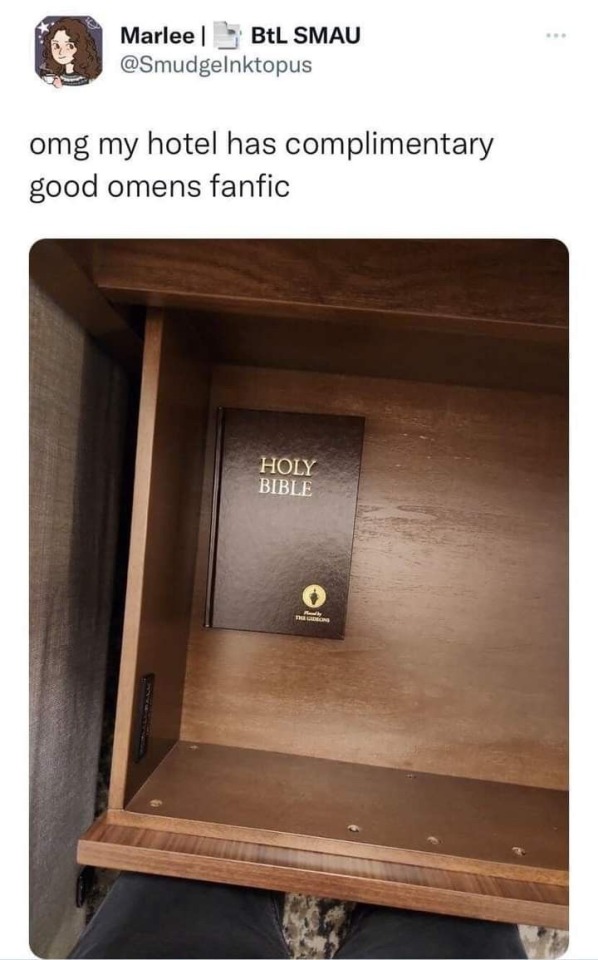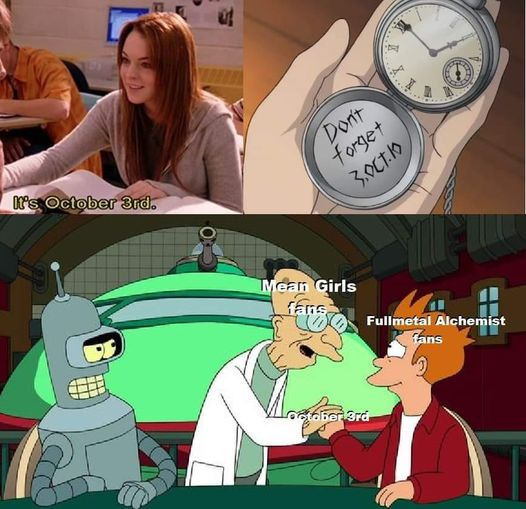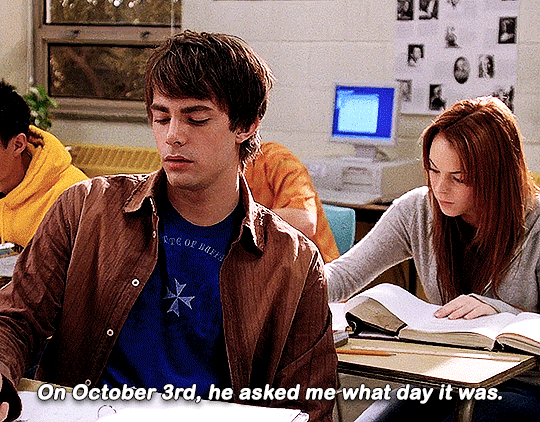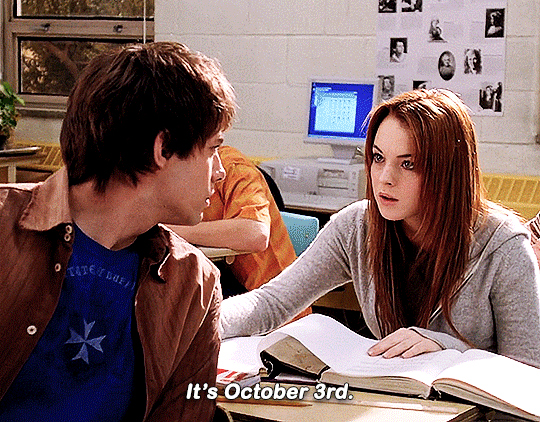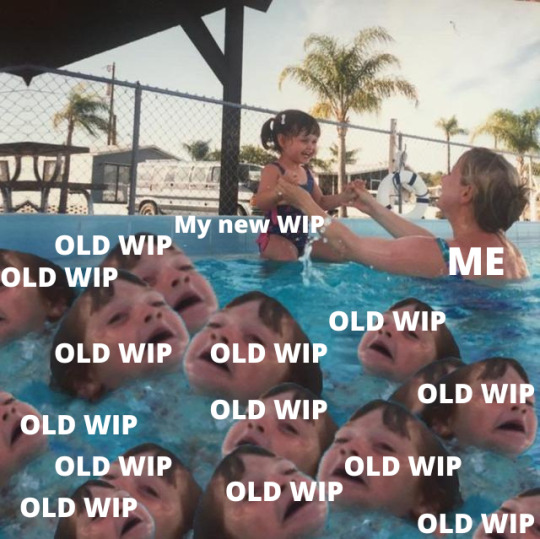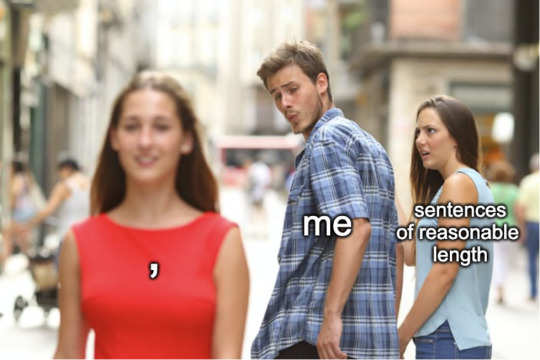Text
BREAKING NEWS
I just learned about a bird species called Golden Plover. Their chicks have an amazing camouflage: their baby fluff resembles MOSS!
LOOK AT THEM! JUST LOOK AT THEM!
...Oh to be a tiny golden plover lying in the moss safe and sound waiting for your mom to bring you some worms...




205K notes
·
View notes
Text
I was meeting a client at a famous museum’s lounge for lunch (fancy, I know) and had an hour to kill afterwards so I joined the first random docent tour I could find. The woman who took us around was a great-grandmother from the Bronx “back when that was nothing to brag about” and she was doing a talk on alternative mediums within art.
What I thought that meant: telling us about unique sculpture materials and paint mixtures.
What that actually meant: an 84yo woman gingerly holding a beautifully beaded and embroidered dress (apparently from Ukraine and at least 200 years old) and, with tears in her eyes, showing how each individual thread was spun by hand and weaved into place on a cottage floor loom, with bright blue silk embroidery thread and hand-blown beads intricately piercing the work of other labor for days upon days, as the labor of a dozen talented people came together to make something so beautiful for a village girl’s wedding day.
What it also meant: in 1948, a young girl lived in a cramped tenement-like third floor apartment in Manhattan, with a father who had just joined them after not having been allowed to escape through Poland with his pregnant wife nine years earlier. She sits in her father’s lap and watches with wide, quiet eyes as her mother’s deft hands fly across fabric with bright blue silk thread (echoing hands from over a century years earlier). Thread that her mother had salvaged from white embroidery scraps at the tailor’s shop where she worked and spent the last few days carefully dying in the kitchen sink and drying on the roof.
The dress is in the traditional Hungarian fashion and is folded across her mother’s lap: her mother doesn’t had a pattern, but she doesn’t need one to make her daughter’s dress for the fifth grade dance. The dress would end up differing significantly from the pure white, petticoated first communion dresses worn by her daughter’s majority-Catholic classmates, but the young girl would love it all the more for its uniqueness and bright blue thread.
And now, that same young girl (and maybe also the villager from 19th century Ukraine) stands in front of us, trying not to clutch the old fabric too hard as her voice shakes with the emotion of all the love and humanity that is poured into the labor of art. The village girl and the girl in the Bronx were very different people: different centuries, different religions, different ages, and different continents. But the love in the stitches and beads on their dresses was the same. And she tells us that when we look at the labor of art, we don’t just see the work to create that piece - we see the labor of our own creations and the creations of others for us, and the value in something so seemingly frivolous.
But, maybe more importantly, she says that we only admire this piece in a museum because it happened to survive the love of the wearer and those who owned it afterwards, but there have been quite literally billions of small, quiet works of art in billions of small, quiet homes all over the world, for millennia. That your grandmother’s quilt is used as a picnic blanket just as Van Gogh’s works hung in his poor friends’ hallways. That your father’s hand-painted model plane sets are displayed in your parents’ livingroom as Grecian vases are displayed in museums. That your older sister’s engineering drawings in a steady, fine-lined hand are akin to Da Vinci’s scribbles of flying machines.
I don’t think there’s any dramatic conclusions to be drawn from these thoughts - they’ve been echoed by thousands of other people across the centuries. However, if you ever feel bad for spending all of your time sewing, knitting, drawing, building lego sets, or whatever else - especially if you feel like you have to somehow monetize or show off your work online to justify your labor - please know that there’s an 84yo museum docent in the Bronx who would cry simply at the thought of you spending so much effort to quietly create something that’s beautiful to you.
26K notes
·
View notes
Text
Okay so
Those are the Pillars of Creation in episode 1, the nursery that angel crowley brings into existence.
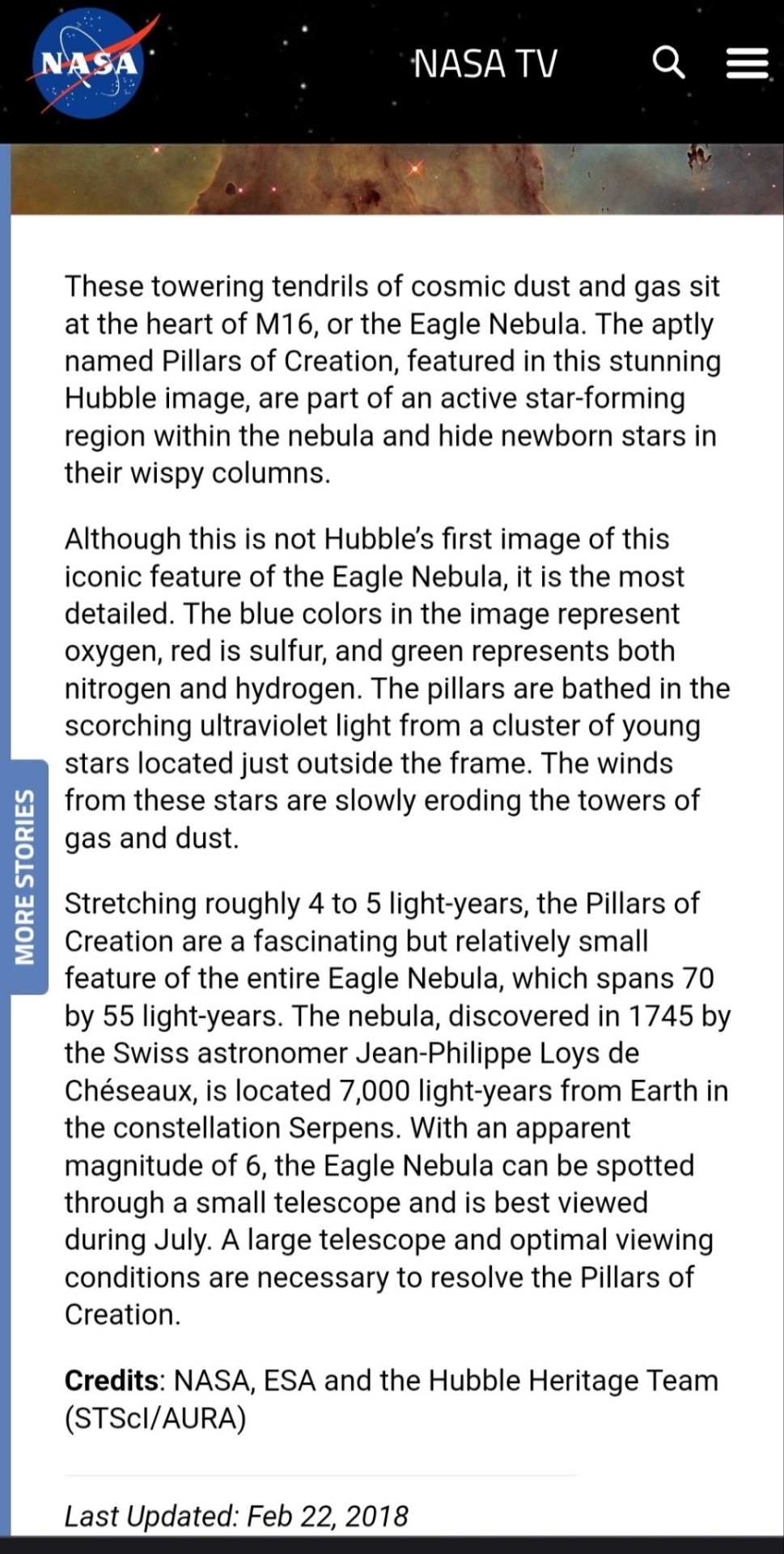
Not only does it reference how much he loves kids (baby stars!!!), but its in the SERPENS CONSTELLATION??? AaAAHhhhHhH???
#good omens#good omens 2#good omens season 2 spoilers#gos2 spoilers#i love space also ow my heart#not to mention theres oxygen and sulfur and hydrogen and nitrogen you know the life and hellpit elements yeah im fine why do you ask#good omens spoilers#it HIDES BABY STARS JUST LIKE HIM
19 notes
·
View notes
Text
BRO????

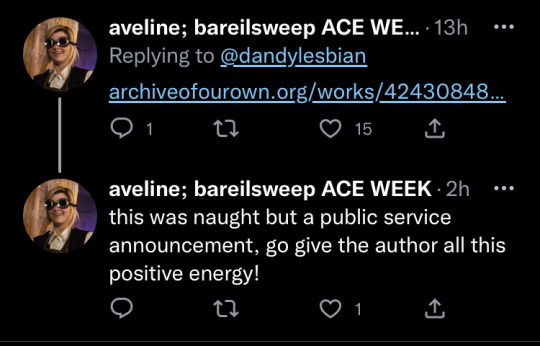
THIS IS SO COOL?
I can't read old english but the second chapter is both a translation and notes on the translation/writing choices which i HIGHLY RECOMMEND THEYRE SO COOL
THE MEANINGS AND CHOICES IN TRANSLATION ARE GETTING TO ME
Also so many of them have these awesome explanations behind them and then there's this:
"The Old English word for “doctor”, læce, literally means “leech”, which he would hate being called so, so much that I immediately had to use it for him."
LIKE YEAH THATLL DO IT LMAO
GO CHECK IT OUT ITS INTERESTING AF
19K notes
·
View notes
Note
Apollo melting his lover's, Icarus', wings
[I’m combining this celebration of 800 with Flash Fiction Friday because I feel like it was destined to be.]
Goddamn, anon, you just annihilated me. Butterflied me on a board with pins of myth and angst. You got to the exact core of my writing aesthetic in one hit, didn’tcha?
I feel like we might be the same person.
Are we the same person? Wave my arm if we are.

Prompt: Burn Baby, Burn | Apollo melting his lover’s, Icarus’, wings
WC: 1066
Title: “Hearts of Gold”
Tagging: @cawolters, @piratequeenofpixies, @quilloftheclouds, @snickertoodles, @carmenwrites, @purpleshadows1989, @ofvisitorsthefairest, @theevolutionofledarose, @kriss-the-writing-nerd
[This got a little longer than intended, so I put the rest under the cut!]
He was never more beautiful than when he was bathed in gold. Sunrise, sunset, midday beams, the curl into dusk, the arc into morning, all paint him pretty like a god, his god, worthy of immortal worship for however long he lasts in this world. In his mind he built temples to the warm curve of his shoulders, the sweet bow of his lips, the clever arch of his brow whenever he said good morning.
Apollo was always one to wax poetic. He might have even been the first. And though this young man, this dreamer, this stubborn fool, his Icarus, was not the first of his, he was precious. In loving this mortal, this human, son of a man and forged from Greek ivory, he once again understood his uncle’s madness.
This would not end as it had before. No jealous wind would take Icarus’ heart from the warm nest of his hands. His eyes could pierce the veils of time and speak the truth, and this was a truth he released into the world each time he felt Icarus’ hand leave his in the morning. There was nothing more beautiful than his golden skin lit by godlight on the sand, water lapping at his feet as his eyes traced the dawn. Though his sister hunted after him when he fled from his place in the sky gifted to him by Helios, he always returned to his chariot with moments to spare. And for a god, a moment can be an eternity. She needn’t worry about him.
Icarus told him stories of his people, of his father, Daedalus, of the man’s inventions and friendships. They were there by request of the king, he’d admitted one night, when Apollo’s sister was far off on a false trail he had laid on his way to their beach. Dragging his hands through the sand, drawing angles and joints and feathers, Icarus told him of the palace, the labyrinth, the queen’s monstrous son, the hero Theseus, each nightfall bringing with it a new story Apollo would hum along to, plucking his lyre with the melody of his lover’s voice, their legs tangled together in the dark. When his tales came to an end each night, Apollo sank his face into Icarus’ hair, breathing in sea-salt and library dust and waiting for the moon to fall.
No, this would not end as it had before. He would protect his flock of one, cage him in his heart and ensure he knew he was loved with every beam of light that kissed his shoulders.
Keep reading
69 notes
·
View notes
Text
When y’all are writing is there ever a point when you’re like “if someone does not lose their mind over this specific bit right here then what am I even doing?”
31K notes
·
View notes
Text
"You're madly in love with Helen, Captain."
I made a video edit with the dialogue of the doctor who brainwashes Kirk in Dagger of The Mind (TOS, s1 e9). The other scenes are from The Motion Picture, The Wrath of Khan and The Search for Spock.
872 notes
·
View notes
Text
But How Does It Sound?
Today, we’re gonna take a look at one of my favorite things to play around with.
Acoustics
That’s right, it’s not just for musicians anymore. “Acoustics” refers to the way the words sound. Simple, right? Eh, not quite. This is one of those times when prose and poetry blend a little bit. It’s one of those nitty-gritty editing things you can do, unless you’re like me and do this constantly and, as a result, write super slow most of the time.
What kind of tone/mood are you going for?
Something dark and ominous that will tingle the spine? Try using longer vowel sounds punctuated by sharp, unvoiced “s” and “t” consonants. You can get into the pacing here, too. The longer vowel sounds tend to slow the pace of a scene, while quick, tappy consonant breaks make the reader more aware of the passage of time. Think of a clock. It clicks, ticks, and you are very aware of it. You count the seconds that slip by, track every tick of the clock and mark each moment.
…see what I did there? Take a look at those last 2 sentences and you’ll see what I mean. You’ve got your hard “k”, “c”, and “t” sounds that bump the stress, then the longer vowel sounds to slow down the end of the line.
Writing something happy, bubbly, or fluffy? Take a gander at some “e”, “b”, “wh”, or other sounds that turn the mouth into a smile shape. How about something sad and angsty? Toss some stressed vowels in there, maybe some hard and soft “g”s, sounds that put your throat to work.
Does one sentence end with a hard “k” sound, and the next sentence starts with an “oh” sound? Do you want that part to flow together and increase the pace and the tension? Make the sentence after the “k” sound also start with a “k” sound! Use your vowels to slow the pace, drag out those “o”s and “u”s (smooth, tooth, upward, longing, stout, etc.).
Of course, this is all relative. If you find sounds that fit your tone, whatever the sounds are, use ‘em!
This would make a whole lot more sense if I put more work into learning the IPA…
What about characters?
[This could be a separate post itself, so I’ll just touch on it here before I do one on Voices.]
Acoustics is a good way to differentiate your character voices. What consonants do they hit when they’re angry? Do they drag out certain vowels when they’re sad? If they have a cadence that uses a lot of sharper sounds, what does that say about them?
Questions? Let me know! Comments? Make ‘em!
If you want further examples, shoot me a message and I’ll do an analysis. (Honestly, I’ll probably do it anyway.)
For more advice and observations, check out my advice tag.
28 notes
·
View notes
Text
If your plot feels flat, STUDY it! Your story might be lacking...
Stakes - What would happen if the protagonist failed? Would it really be such a bad thing if it happened?
Thematic relevance - Do the events of the story speak to a greater emotional or moral message? Is the conflict resolved in a way that befits the theme?
Urgency - How much time does the protagonist have to complete their goal? Are there multiple factors complicating the situation?
Drive - What motivates the protagonist? Are they an active player in the story, or are they repeatedly getting pushed around by external forces? Could you swap them out for a different character with no impact on the plot? On the flip side, do the other characters have sensible motivations of their own?
Yield - Is there foreshadowing? Do the protagonist's choices have unforeseen consequences down the road? Do they use knowledge or clues from the beginning, to help them in the end? Do they learn things about the other characters that weren't immediately obvious?
84K notes
·
View notes
Text
Writing is not about 'telling an epic story' or 'making something that will outlive you'. Writing is about going "You know what would be fucking awesome?" and then committing word crimes
85K notes
·
View notes
Text
writing tip:
if you push buttons on a keyboard, letters will appear on the screen. and with that power you can do anything
157K notes
·
View notes
Text
I hope every writer who sees this writes LOADS the next few months. Like freetime opens up, no writers block, the ability to focus, etc etc you're able to write loads & make lots of progress <3
144K notes
·
View notes
